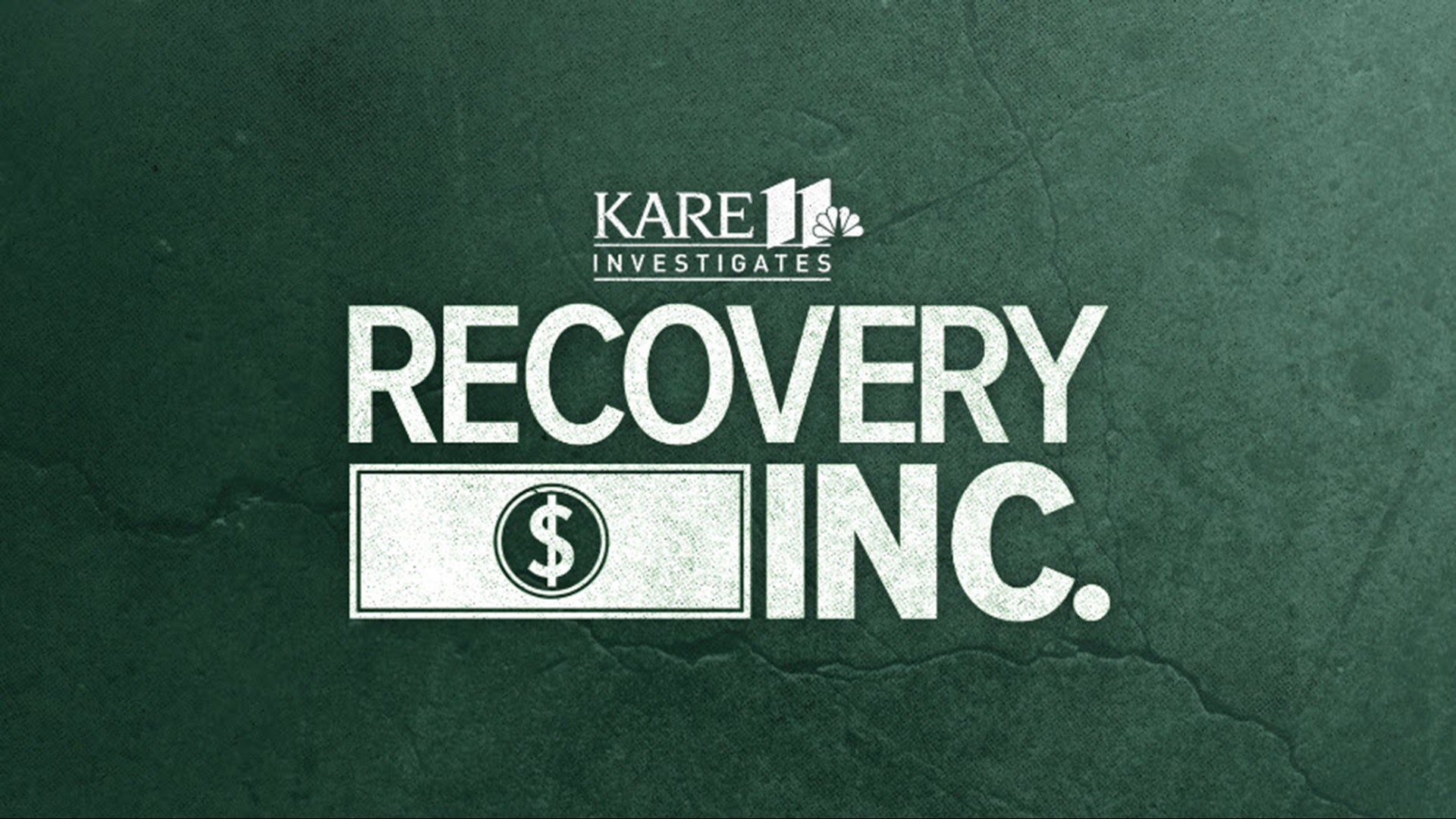ST PAUL, Minn. — A Minnesota House committee has advanced new legislation designed to provide more oversight – and a new reimbursement system – for a multi-million-dollar taxpayer funded program designed to help people who are recovering from addiction.
The bipartisan bill addresses issues revealed in a series of reports by KARE 11 Investigates. Since December, KARE 11 has been documenting questionable billing practices in a rapidly expanding program that allows people who have spent at least a year in recovery from alcohol and chemical addiction to be paid to mentor newly recovering clients.
“The overall bill is really seeking to put more regulations and guidelines around peer support services,” explained bill sponsor Rep. Heather Edelson (DFL-Edina).
The bill is being co-sponsored by Rep. Dave Baker (R-Willmar) and Rep. Brion Curran (DFL -Vadnais Heights).
A separate measure proposed by Rep. Luke Frederick (DFL-Mankato) would require all recovery peers to be classified as employees – not independent contractors. It would also establish an Ombudsman to review complaints about peer recovery support services.
Lawmakers stressed they support addiction recovery efforts – but want to make sure taxpayer money is being spent wisely and appropriately.
“We’ve got more to do. We’ve got to keep pushing it – because time is lives,” Rep. Baker told the committee.
Questionable charges
“Some of the events were just like made up,” former Kyros client Daniel Schulz told KARE 11 as he reviewed Medicaid billings made in his name.
Schulz and other former clients claimed taxpayers were billed for services never provided.

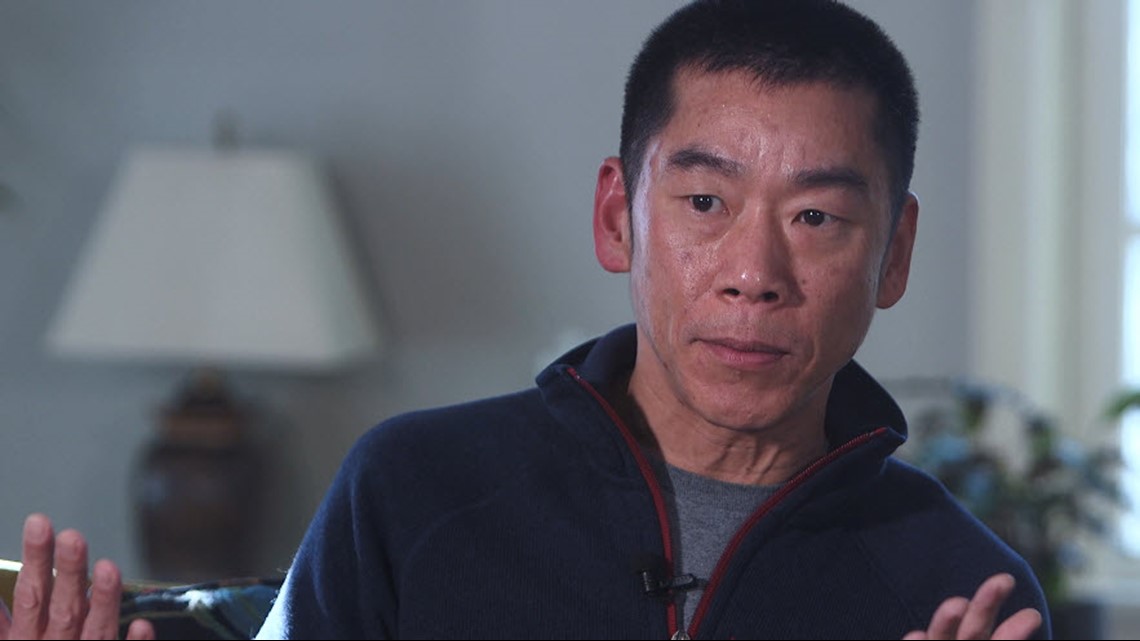
KARE 11 Investigative reporter A. J. Lagoe also reviewed billing records with former Kyros client Aubrey Kjerstenson.
“You’re saying that didn’t happen?” Lagoe asked.
“I’m saying that outright did not happen,” Kjerstenson replied.
Former Kyros peer Ruby McNiff told KARE 11 she was instructed to falsely bill for group events as if they were a series of back-to-back, one-on-one meetings – a potential violation of state and federal law.

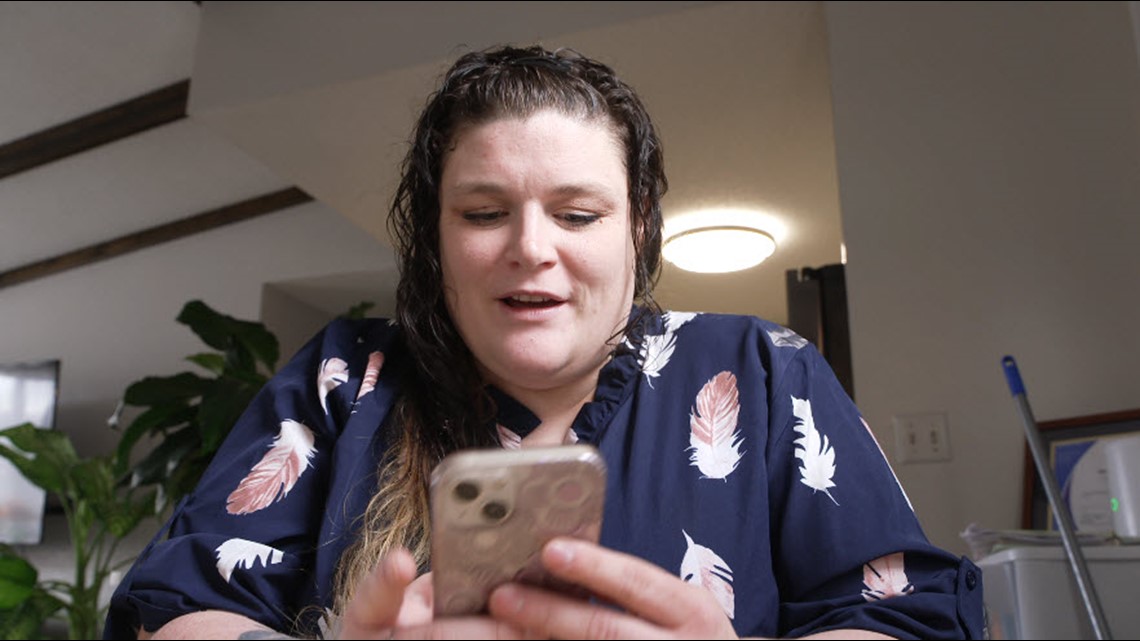
For example, last July 4 McNiff was taking a group of clients to a fireworks display. She texted a supervisor: “Can I bill for that?”
He gave her a thumbs up.
“Ok how,” she responded. “Just schedule them back-to-back?”
“Yeah,” he replied.
“He said just bill them back-to-back,” McNiff told KARE 11. “I was told that that was fine.”

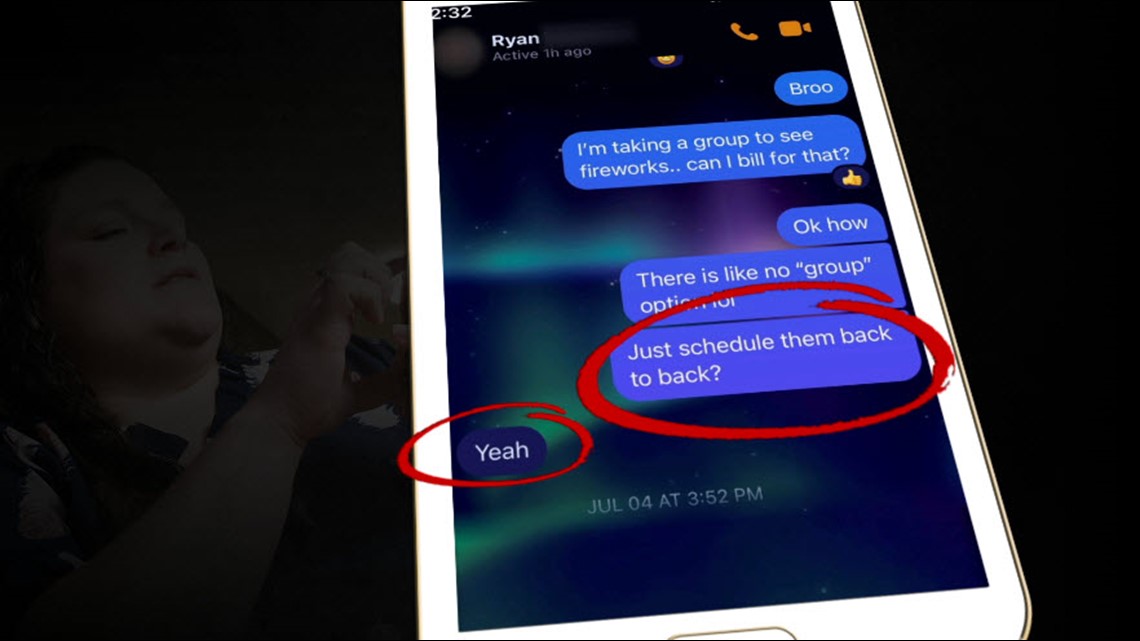
“You’d meet with a group of people from say 4 to 6, but then bill it as if they were 12 to 2, 2 to 4, 4 to 6?” asked Lagoe.
“Correct,” Ruby replied.
New requirements
Rep. Edelson says her bill would tighten the rules to require that peers have an “individual recovery plan” for each client they serve – and document how each peer session ties to that plan.
The bipartisan bill would also increase oversight of individual peers. Each peer service provider would be required to meet at least once a month with a licensed alcohol and drug counselor or mental health professional supervising the peer.
Although peer services are supposed to be “face-to-face interactions between a recovery peer and a client,” the proposal would allow for a limited number of small group activities if they are “directly related to a client’s individual recovery plan.”
The bill would require the state Department of Human Services to develop a “tiered reimbursement rate structure” – with different rates for one-on-one services and for small group sessions. The groups could include up to four clients.
The proposal would authorize the department to review billing claims to determine their “medical necessity.”
The reform proposals were prompted after lawmakers raised concerns about whether some firms – including Kyros – were trying to cash in on the peer recovery program.
Millions at stake
Daniel Larson is the founder and CEO of the for-profit company Kyros.
Under the law, his for-profit company can’t bill Medicaid directly – but Refocus Recovery, a nonprofit Larson also founded, can.
So, the nonprofit submits the bills and pays Larson’s for-profit company to do the work.
For calendar year 2022, public tax records filed by the nonprofit show 96% of the revenue Refocus received was then paid to Kyros subsidiaries.
Internal records obtained by KARE 11 reveal Kyros told investors they projected making nearly $30 million in gross profit by the end of this year.

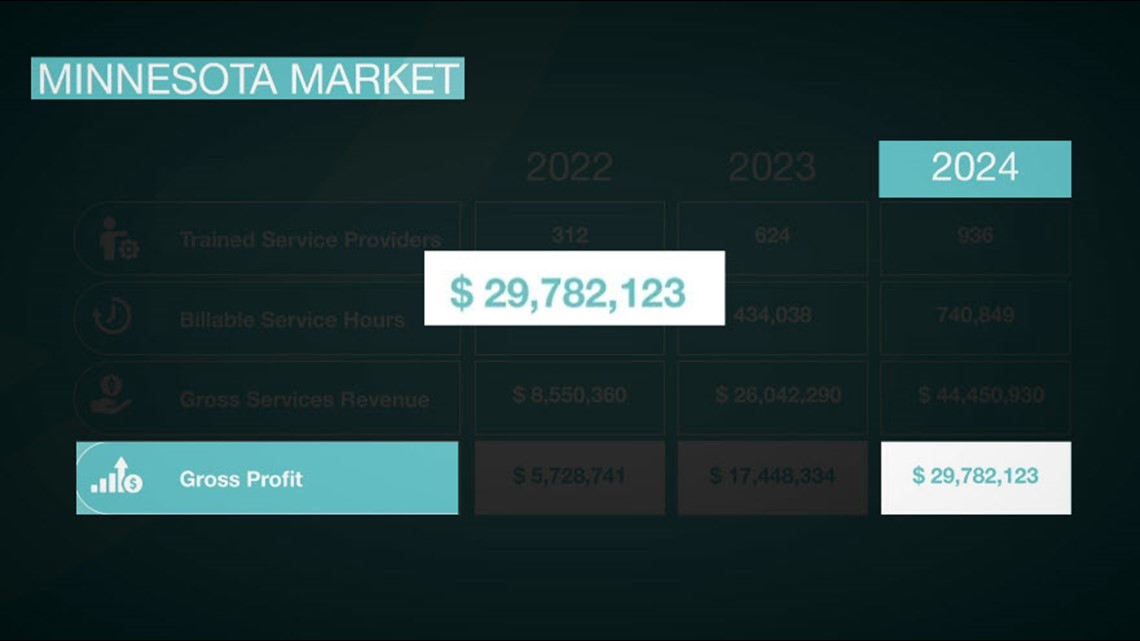
Larson has declined interview requests, but in a written statement Kyros said it “monitors billing practices closely to ensure they meet statutory requirements, and any deviation found is addressed promptly and appropriately.”
Medicaid reimbursements to Refocus Recovery have soared – from just $1,343 in 2021 to $4.4 million in 2022, and to more than $9.6 million through Oct 5, 2023, according to data provided by the Minnesota Department of Human Services.
In all, since January 2022 records show Refocus has been reimbursed more than $14 million – more than all other peer support non-profits combined. The next closest group has been reimbursed less than $2 million during the same period.
Ongoing investigations
“I am here today to testify in full support of House File 3397,” said Randy Anderson, the founder of Bold North Recovery. Anderson and representatives of other addiction recovery nonprofits told the committee they support tougher requirements.
No one from Refocus Recovery or Kyros testified.
While the legislature considers reforms there are multiple official investigations underway into the allegations of improper billing.
At a hearing last month, the Inspector General for the Minnesota Department of Human Services told state lawmakers there’s an active investigation into the for-profit addiction recovery company Kyros and its non-profit partner Refocus Recovery.
Under questioning by GOP Senator Jim Abeler, DHS’s Kulani Moti said, “DHS can confirm an ongoing investigation regarding Kyros and Refocus Recovery.” Because it is an active investigation, she said she could not provide additional details.
Sources tell KARE 11 the Minnesota Attorney General's office is also investigating.
Watch more KARE 11 Investigates:
Watch all of the latest stories from our award-winning investigative team in our special YouTube playlist:

